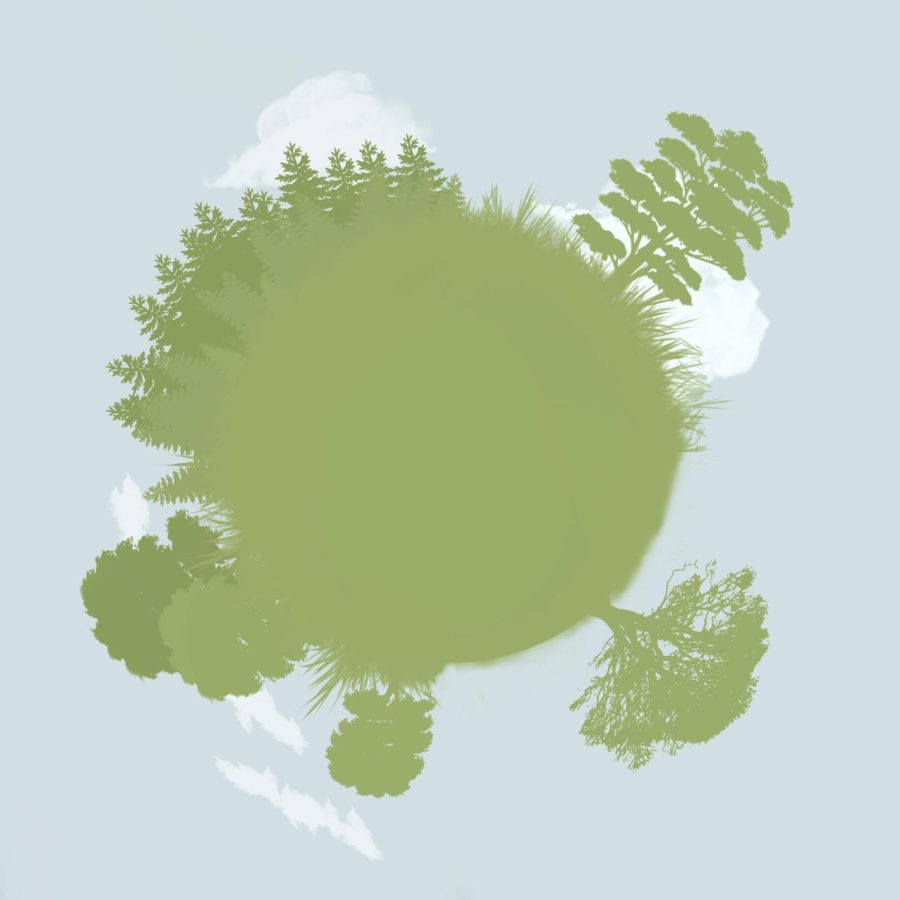Opinion | Environmental science should become a required high school course
March 16, 2023
Every year, every moment, our climate crisis worsens. Human activities, such as the burning of fossil fuels for energy and deforestation for livestock management, release significant amounts of greenhouse gases — methane, carbon dioxide and nitrous oxide — into our atmosphere. These gases rapidly warm our planet, causing global shifts in temperature and weather patterns as a result.
These shifts are, more often than not, destructive on grand scales. They increase the intensity and frequency of natural disasters, such as forest fires, hurricanes and drought. They give rise to unnatural weather patterns and the destruction of natural life. They kill our planet. They threaten our very existence.
While these drastic changes occur, America is lacking when it comes to environmental education. A 2018 study on secondary education found that only two states require environmental science, and only eight require Earth or space science for high school graduation. A 2021 study from Yale shows that 14% of Americans do not agree that climate change is happening at all, and 30% don’t even believe that it is rooted in human causes. Even those who do believe in anthropogenic climate change are fuzzy on the details.
A significant aspect of America’s failure to implement effective climate policy, and effectively fight climate change, stems from this absence of education. In order to address this deficiency in understanding and consequently improve action against climate change, we must improve our environmental education. Environmental science must become a required course in secondary institutions, in line with biology, chemistry and physics.
Most students in America recognize biology, chemistry and physics as the “big three” natural science courses. These subjects are required by most high schools in America because they are fundamental to the understanding of most other natural sciences and often build off of each other in terms of knowledge and comprehension.
Different facets of environmental science intersect with these disciplines, too, such as ecosystem ecology, geochemistry and geomorphology, which overlap with biology, chemistry and physics, respectively. In this way, environmental science builds off of the other core sciences in the same way they do with each other, testing students’ understanding of these subjects and providing supplemental knowledge in these areas.
While environmental science isn’t necessarily a foundational science in the same way that biology, chemistry and physics are, it is nevertheless just as important in today’s world. Environmental science has very crucial, real-life applications that make it a necessary course as we navigate our changing climate. For one, a basic understanding of environmental science illustrates how climate change works. There is no confusion or debate about whether climate change is real or not — unless you doubt science backed by the scientific method as well as millions of credible researchers and educators around the world over a span of decades.
Studying environmental science also allows you to conceptualize the human causes behind climate change and become self-aware. You learn of the various systems that influence life on Earth, such as the water, carbon and nitrogen cycles. Thus, you also learn how your personal actions — and those of larger entities, such as Big Oil, factory farms and large corporations like Amazon — negatively influence these cycles. Consuming natural resources means changing the flow of these cycles in complex ways, enabling feedback loops that are usually destructive in nature.
By becoming aware of how your actions impact the Earth’s climate, you become more thoughtful in your personal interactions with the environment. You often make decisions about your habits that you would not have considered otherwise — whether through your food consumption, clothing and technology consumption or use of transportation.
In addition, studying environmental science helps students become environmental advocates. After learning about the importance of protecting our environment and limiting harmful human activities, you also learn of the significance of this issue and the tangible consequences of inaction, which is primarily the destruction of biodiversity and human life. If this desire for change is widespread, if you change how you talk about and care for this issue, then Generation Alpha and Generation Z may actually have the power to enact meaningful, lasting change.
Lastly, this drive to create change encourages students to further pursue environmental science or studies, both through careers and higher education. People are more likely to recognize personal interest in the environmental sciences if they take a relevant course, and because of this, many students may choose to dedicate themselves to the fight against climate change in ways other than mere advocacy. More people choosing to pursue the environmental sciences in both careers and higher education results in more research and the creation of new technologies that can limit our greenhouse gas emissions and other environmentally destructive actions.
All of these benefits apply to teachers as well as students. In order to teach environmental science, teachers must first learn the subject themselves and understand it well. This encourages teachers to believe in climate science, change their habits, advocate for environmental policy and even pursue further education or research in this field.
Even if secondary schools do not require environmental science, they must — at the very least — offer it in an accessible capacity. Many schools — such as my own high school, at least when I attended from 2015-2019 — offer AP Environmental Science, but they offer no similar courses at the college prep or honors level. Offering an introductory course in environmental science is the minimum for educating students on a topic that is more relevant and important for them to understand than any generation before.
Sarah Liez writes primarily about gender issues and social phenomena. Write to her at [email protected].








